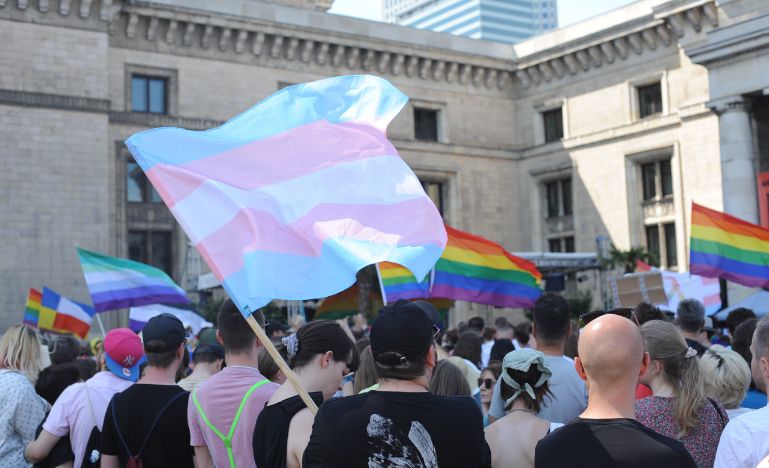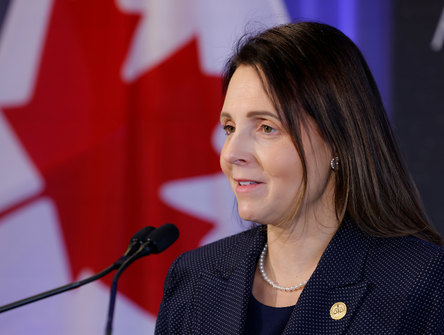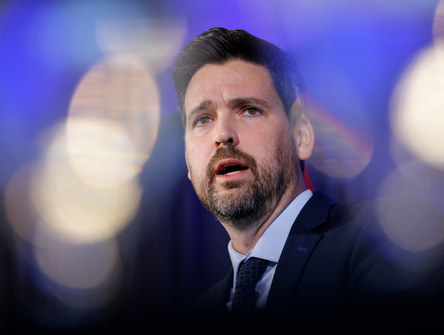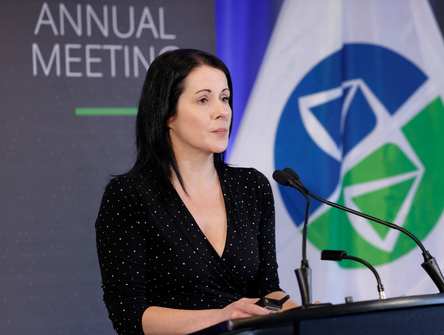Protecting trans rights in Canada
Lawyers Against Transphobia is gearing up for a fight

As the Trump administration unveils a raft of policies and executive orders targeting queer and trans rights, Canadian lawyers and law firms are preparing to safeguard 2SLGBTQ+ rights against escalating attacks in this country.
President Donald Trump’s executive orders — which have included directing the Pentagon to potentially ban trans people from the military, cutting support for gender transitions for people under 19, and defining gender as binary — have reshaped the landscape for queer and trans people in the U.S. But the effects of that rhetoric don’t stop there.
“What Trump is doing is moving the goalposts of acceptable political discourse,” says barbara findlay, co-founder of the group Lawyers Against Transphobia.
“That is likely to embolden anti-trans folk in Canada and inject a toxic element into our own political discourse.”
By targeting a minority group, Trump is legitimizing a political model “that is likely to have a huge and negative impact for trans people worldwide,” findlay says.
For some lawyers, this has immediate implications as they mobilize to help queer and trans people in the U.S. who are looking to emigrate.
Connie Campbell, an immigration lawyer based in Vancouver, has been fielding calls from people looking to move to Canada and who are interested in the refugee process. However, despite the harsh executive orders, Campbell says it’s unclear whether refugee claims would be successful.
Based on their understanding, including ATIPs of every refugee claim against the U.S. on the basis of sexual orientation or gender identity, there’s never been a successful refugee claim against the U.S. for gender identity.
“You’re making a test case of yourself, and the ground truth of what is happening is changing so quickly, it’s difficult to say whether or not conditions are actually persecutory in every part of the United States,” Campbell says.
Given that one of Trump’s executive orders declares that the U.S. government only recognizes two sexes — male and female — some advocates and lawyers have urged the federal government to create a carve-out of the Safe Third Country Agreement so that trans and non-binary asylum seekers who come to Canada’s border would not be automatically sent back to the U.S.
Travel advisories for LGBTQ folks travelling to certain parts of the U.S. make it clear that the Canadian government doesn’t see every part of the country as dangerous. But Campbell says Canada has been reluctant to recognize refugees from there because of the close relationship between the two countries. That said, along with other lawyers, they are working to put together online resources for people looking to move here.
And while people aren’t wrong to think Canada is safer for trans people than our southern neighbour, Campbell says people need to weigh their options carefully, as making a refugee claim can foreclose other pathways for immigration.
At the same time, some lawyers are preparing for increasing attacks on queer and trans people in this country. The Canadian Civil Liberties Association is hiring a summer student focused on trans rights. In 2023, the 2SLGBTQI advocacy group Egale Canada hired a legal director, recognizing that trends in the United States and elsewhere would make recourse through the courts more necessary.
That has included legal battles over initiatives like Saskatchewan’s policy requiring parental consent for children under 16 to use different names or pronouns at school. Egale, representing a local organization, obtained an injunction on the basis that the policy would harm gender-diverse young people. The government responded with the notwithstanding clause, circumventing equality rights. A decision from the Saskatchewan Court of Appeal is forthcoming.
Egale has also developed resources to combat mis- and disinformation about queer and trans folks, and equip allies with materials to help them respond.
“This is a really terrifying moment for trans folks and their friends and family. What gives me solace in Canada is how many people are unwilling to see this minority group scapegoated,” says Bennett Jensen, Egale’s legal director.
“I really hope that we as a country can take lessons from the cruelty and the horror happening south of the border and recognize that that’s not the kind of country we want to be in.”
Still, there are further challenges ahead. Though the facts differ, Jensen says the issues in Saskatchewan closely mirror those at play in the Supreme Court’s consideration of the Quebec Court of Appeal’s decision upholding Bill 21, the province’s secularism law.
The case marks the first time the use of the notwithstanding clause to deny equality rights will be considered by the Supreme Court, and findlay says many advocates are anxiously awaiting the outcome.
“In my view, that decision will either support or eliminate equality rights over the next generation,” she says.
That case is likely to be heard this fall. findlay says it’s imperative that lawyers realize the urgency of the current moment.
As a first step, she suggests firms take steps to make clear they support queer and trans people through washrooms, signage and forms.
Meanwhile, Lawyers Against Transphobia is developing a resource for school boards dealing with transphobia and planning a national conference for the fall. While that work predated the Trump administration’s policies, findlay says those changes have given it a greater sense of urgency.
Organizations like the Canadian Bar Association are also taking what is happening in the US as a cautionary tale and offering education on trans issues for lawyers.
“Without the education, it’s harder for people to understand the extent of the harms that are caused by these types of policies,” says CBA BC President Lee Nevens.
In recent years, the CBA has also passed resolutions to combat transphobia and proposed guidelines for the use of the notwithstanding clause to address its increasing deployment on policies targeting queer and trans youth.
Nevens says if attacks on trans people become normalized, it won’t only affect members of that community.
“It starts with trans people, but it’s not going to end with trans people, and a lot of the rights that have become the norm for decades start to be eroded.”
When trans rights are threatened, Nevens says it’s important that allies get involved in the fight and not retreat from their principles in the face of potential reprisals.
“Now is not the time for that,” they say.
“Now is the time to continue pushing forward, continue educating, continue fighting.”


